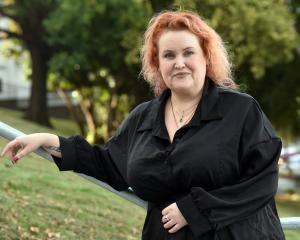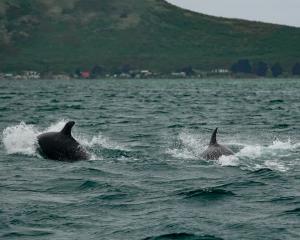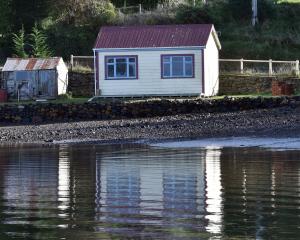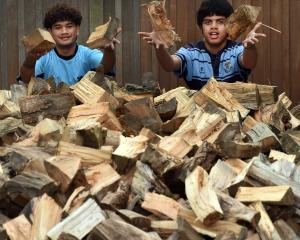A young, dehydrated and confused albatross has hitched a ride back to the coast with the couple who found it on the side of the road at Ettrick.
Kelly Findlay and partner Todd Hessey spotted the southern Buller's mollymawk sitting in long grass next to State Highway 8 on the outskirts of Ettrick on Wednesday.
It was still there when they drove back 20 minutes later.
They rang a vet, who advised them to contact the Department of Conservation's Alexandra branch.
''Doc told us to see if we could catch it by putting a sheet or blanket over it and bring it up to them,'' Miss Findlay said.
They picked up a sheet and cat cage from their Ettrick home and then attempted to catch the bird.
''It was not hurt but was remarkably calm to catch, as it was really confused and lost,'' she said.
Doc told them the Buller's albatross needed to be returned to the coast.
''So we decided to shoot through to Dunedin.''
She said they were told it was dehydrated. They tried to give it water but were told the birds normally got their fluids when they dived for fish.
''We did exactly what Doc told us to do.
''We kept the cat box covered with a towel the whole time, as we did not want to stress it, but it did let out a bit of a squawk and jumped around the cage.''
Accompanied by Miss Findlay's son Dion Muir (14), they arrived at Blackhead Beach, near Green Island, by late afternoon.
After it was released, it had one flying false start, and then it sat on the beach.
''It was mobile, and stood up a few times and spread its wings.''
The couple then left as it was getting dark, leaving the bird on the beach, but they were optimistic the bird would eventually fly, once it had time to get its ''sea bearings''.
''We were told they have a built-in compass and [it] needed to work out where it was.''
Doc Alexandra's partnership ranger Jacob Dexter said in nearly eight years at the office he had not seen an albatross that far inland, although staff sometimes dealt with petrels and other sea birds.
Doc conservation services manager in Invercargill, Ros Cole, said often young birds were fledging and still learning how to take off.
During strong winds, young birds often found themselves flying for the first time and were blown inland.
The large birds stranded in odd places, such as beside railway lines, effluent ponds and in backyards or paddocks a long way from the sea.
Ms Cole asked southerners to keep an eye out for them.
''Anyone coming across a mollymawk in their paddock can pick it up and take it for release at the beach,'' Ms Cole said.
''Let it out into the dunes, away from dogs, or in the water to re-launch.
''They don't need feeding and shouldn't be warmed.
''If you can't do this, contact your local Doc office and arrangements will be made.''
One season, Doc rangers picked up about 30 of the birds which had been blown inland.
The southern Buller's mollymawk breeds on the Solander Islands, to the west of Stewart Island, and on the Snares Islands.












